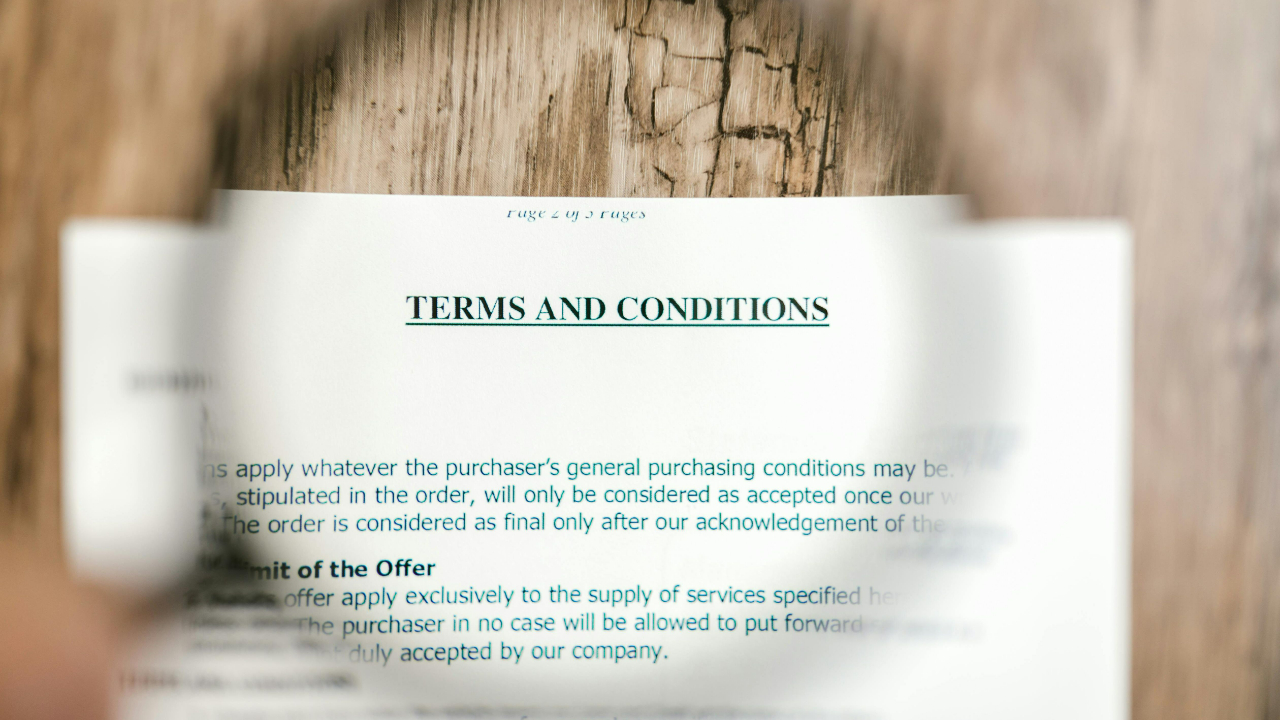Contract Clauses That Keep Your Business Safe During Crises

When unexpected events hit—like a natural disaster, pandemic, or supply chain disruption—contracts can make or break your business’s ability to survive. Strong contract clauses don’t just define what’s supposed to happen when things go right; they protect you when things go wrong. Here are the key provisions every business owner should understand and include to stay secure during times of crisis.
1. Force Majeure: The “Act of God” Clause
This is the most well-known crisis-related clause, and for good reason. A force majeure clause frees both parties from liability if extraordinary events prevent them from fulfilling their contractual obligations. Think natural disasters, wars, government shutdowns, or pandemics—events beyond your control.
To make this clause effective, it needs to be specific. Instead of vague phrases like “unforeseeable circumstances,” clearly list what qualifies: epidemics, cyberattacks, labor strikes, and other relevant risks. Also, include requirements for prompt notice—so both sides communicate quickly and attempt to mitigate the damage.
2. Termination and Suspension Rights
Sometimes, continuing a contract during a crisis just isn’t feasible. That’s where termination and suspension clauses come in. These provisions allow you to pause or end a contract without being penalized if circumstances make performance impossible or severely impractical.
It’s important to define what triggers these rights. For example, you might allow contract suspension if government restrictions prevent your operations, or if supply shortages exceed a certain timeframe. This ensures flexibility without opening the door to misuse.
3. Payment and Delivery Adjustments
Crises often strain cash flow and disrupt logistics. A payment adjustment clause lets you renegotiate payment schedules or temporarily defer obligations without breaching the contract. Similarly, a delivery adjustment clause can provide grace periods or substitute methods (like digital delivery instead of physical shipments) when normal channels fail.
These clauses show good faith and protect relationships by preventing unnecessary disputes over timing and logistics.
4. Indemnity and Liability Limits
In high-stress situations, one small misstep can lead to big losses—and lawsuits. That’s why limiting liability and including indemnity provisions is crucial. These clauses define who bears financial responsibility for certain losses or damages and to what extent.
For example, your contract might cap liability at the total value of the agreement or exclude responsibility for indirect damages like lost profits. This helps prevent catastrophic financial fallout when events spiral out of control.
5. Dispute Resolution and Governing Law
When a crisis leads to conflict, you don’t want to be stuck in a drawn-out courtroom battle. Dispute resolution clauses can direct both parties to mediation or arbitration first, which saves time and money. Additionally, stating a clear governing law and jurisdiction ensures everyone knows which state or country’s laws apply—crucial if your partners are international.
Final Thought
Crises don’t wait for contracts to catch up. Reviewing and updating your agreements regularly—especially after global disruptions like COVID-19—helps keep your business agile and legally protected. By building contracts with clear force majeure terms, flexible performance options, and fair risk allocation, you give your business the best chance to survive—and even thrive—through whatever comes next.
For legal help in California and your other needs, contact BERYS LAW on this page. We also offer courses on real estate investing, landlording, and templates right here!
Stay connected with news and updates!
Join our mailing list to receive the latest news and updates from our team.
Don't worry, your information will not be shared.